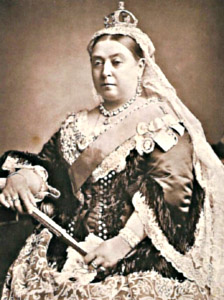 British Empire and its history in India are considered one of the most remembering and remarkable historical periods in Indian history. With the advent of British ships on Indian coasts in early 16th century, things did not remain the same any more. Distinct features of each age and century underline British rule in India, starting with the British East India Company and ending with Lord Mountbatten and transfer of power in 1947. British regime in India can be named as one of contrasts; on one hand, they were hell bent to wrech havoc on hapless `natives` and `blackies`, one the other hand, they went on establishing umpteen ways to make natives educated and learned for the future. Education was such a sphere, where the British perhaps contributed the most. Development of education in India during British rule was enormous, commencing from the elementary level and reaching up to high school and doctoral levels.
British Empire and its history in India are considered one of the most remembering and remarkable historical periods in Indian history. With the advent of British ships on Indian coasts in early 16th century, things did not remain the same any more. Distinct features of each age and century underline British rule in India, starting with the British East India Company and ending with Lord Mountbatten and transfer of power in 1947. British regime in India can be named as one of contrasts; on one hand, they were hell bent to wrech havoc on hapless `natives` and `blackies`, one the other hand, they went on establishing umpteen ways to make natives educated and learned for the future. Education was such a sphere, where the British perhaps contributed the most. Development of education in India during British rule was enormous, commencing from the elementary level and reaching up to high school and doctoral levels.
Though the years within the late 17th and early 18th centuries were not the serious education years, development of education under British regime was first witnessed in late 18th and early 19th centuries. The years of Sepoy Mutiny and its after-effects had passed by. The times later to Mutiny were divisional, after Quenn Victoria directly annexed India under Her ruling from England. Indians now were divided among social classes and groups - high-classed educated Indians, assisting the British government and crusading natives, also termed freedom-fighters, `swadeshis` and nationalists. The former group primarily leaned towards British-aided education, with the opening of schools, colleges and universities. In these cases also one could witness an overall bias towards educative measures. British individuals were always favoured over Indian counterparts. Yet exceptions proved these arguments as on the contrary.
On such exceptional occasions were formed the Education Commission, 1882-1884. The Company rulers and the Viceroy-Generals had arrived at a decision to form such a Commission to look into administrative affairs of the education system of India. Rurality was the order of the day in native education, when British interference was necessary for upliftment. From that day on, development of education under British rule had commenced. Several fields were looked into, like the system of revenue in education, female education, establishment of schools and colleges, affiliation of government run universities and funds allotted.
The turn of the century witnessed even more development in education under British ruling, when educational reforms of 1901-1904 came into consideration. The reforms were primarily made under the supervision of Lord Curzon, Viceroy of India. Initial resistance were dispensed with and the politically intelligent Indian class came into proper picture. In fact, had it not been for such native men, British educational system would never have been thus popular as it is in present times. To honour Indian contribution to education, several acts were made into law by the British government of India.






































